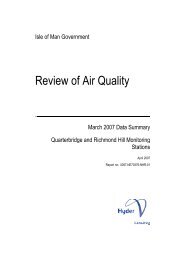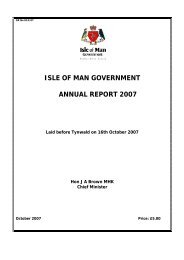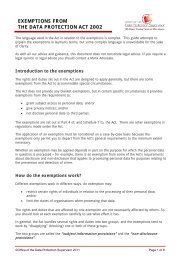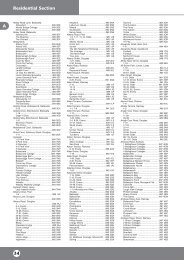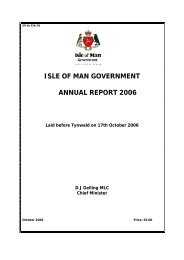Storing Petrol - Isle of Man Government
Storing Petrol - Isle of Man Government
Storing Petrol - Isle of Man Government
You also want an ePaper? Increase the reach of your titles
YUMPU automatically turns print PDFs into web optimized ePapers that Google loves.
<strong>Storing</strong><br />
<strong>Petrol</strong><br />
Good practice and sound advice<br />
I s l e o f M a n<br />
Office <strong>of</strong> Fair Trading<br />
The Office <strong>of</strong> Fair Trading<br />
Our <strong>of</strong>ficers can <strong>of</strong>fer advice on<br />
storage facilities for small or large<br />
quantities <strong>of</strong> petrol, good practices,<br />
separation distances, fire fighting<br />
equipment, security and other safety<br />
measures. They will inspect storage<br />
facilities before a licence is issued.<br />
Published by the <strong>Isle</strong> <strong>of</strong> <strong>Man</strong> Office <strong>of</strong> Fair Trading<br />
<strong>Government</strong> Building<br />
Lord Street • Douglas • <strong>Isle</strong> <strong>of</strong> <strong>Man</strong> • IM1 1LE<br />
T: (01624) 686520 • F: (01624) 686504<br />
E-mail: iomfairtrading@gov.im<br />
www.gov.im/<strong>of</strong>t<br />
ISSUED BY THE<br />
ISLE OF MAN OFFICE OF FAIR TRADING
Do I need a licence to<br />
store petrol?<br />
You must obtain a licence from the <strong>Isle</strong> <strong>of</strong><br />
<strong>Man</strong> Office <strong>of</strong> Fair Trading if you store more<br />
than 10 litres <strong>of</strong> petrol. This applies wherever<br />
it is stored, e.g. at your home, place <strong>of</strong> work<br />
or place <strong>of</strong> recreation.<br />
An application form can be obtained from<br />
the Office. Contact details are shown on reverse.<br />
Why is a licence required?<br />
Strict controls are applied in relation to the<br />
storage <strong>of</strong> petrol to minimise the risk <strong>of</strong> fire,<br />
explosion, death and serious personal injury.<br />
It is a criminal <strong>of</strong>fence to store petrol if the<br />
requisite licence has not been obtained.<br />
Why is petrol dangerous?<br />
• <strong>Petrol</strong> is a highly flammable liquid.<br />
• <strong>Petrol</strong> gives <strong>of</strong>f a flammable vapour even at<br />
low temperatures. Flammable vapour will be<br />
present immediately after any petrol has<br />
been spilt.<br />
• There is always a risk <strong>of</strong> fire or explosion if<br />
there is a source <strong>of</strong> ignition, e.g. someone<br />
smoking, having a barbecue or welding, in<br />
the presence <strong>of</strong> petrol or petrol vapour.<br />
• It only needs a minute quantity, e.g. a<br />
teaspoonful, <strong>of</strong> petrol to create a<br />
flammable atmosphere.<br />
• <strong>Petrol</strong> floats on the surface <strong>of</strong> water and can<br />
increase the risk <strong>of</strong> fire or explosion well away<br />
from where it escapes by travelling long<br />
distances along a water course, e.g. a drain.<br />
• The presence <strong>of</strong> petrol vapour increases the<br />
risk <strong>of</strong> fire or explosion in places where there<br />
is little movement <strong>of</strong> air, e.g. within<br />
workshops, inspection pits or enclosed<br />
spaces, as it does not disperse easily and<br />
tends to sink to the lowest possible level.<br />
• <strong>Petrol</strong> or petrol vapour can flash back over<br />
long distances, e.g. across the floor <strong>of</strong><br />
a workshop.<br />
• A flammable atmosphere may be present in<br />
any empty vessel, e.g. a fuel tank or a jerry<br />
can, in which petrol has been kept.<br />
• Contaminating clothing or anything else that<br />
is absorbent with petrol, e.g. rags, a towel or<br />
sand, increases the risk <strong>of</strong> fire or explosion.<br />
How should I store petrol?<br />
There are a number <strong>of</strong> ways in which you can<br />
minimise the risk <strong>of</strong> fire, explosion, death and<br />
serious personal injury.<br />
• Avoid storing excessive quantities <strong>of</strong> petrol.<br />
• Store and carry petrol in specifically designed<br />
plastic or metal containers e.g. jerry cans.<br />
• In workplaces you should store petrol<br />
containers inside a cabinet or storeroom <strong>of</strong><br />
30 minutes fire resistant construction, fitted with<br />
precautions against spillage and clearly labelled:<br />
“PETROLEUM SPIRIT – HIGHLY FLAMMABLE”.<br />
• Keep all sources <strong>of</strong> ignition away from where<br />
petrol is being handled or stored. Obvious<br />
ignition sources include open flames, hot<br />
surfaces and sparks from electrical, welding<br />
or cutting equipment. Not so obvious<br />
ignition sources include mobile phones,<br />
sparks from footwear and static electricity.<br />
• Store petrol well away from where people<br />
work and live.<br />
• Secure the storage facility against theft<br />
and vandalism.<br />
• Ensure that there is adequate ventilation<br />
where petrol is being handled or stored.<br />
• Ensure that the store has adequate and<br />
appropriate fire fighting equipment and<br />
adequate dry sand to soak up spillages.<br />
• Take precautions to prevent the escape <strong>of</strong><br />
petrol or petrol vapour from where petrol is<br />
being handled or stored, e.g. avoid spillages<br />
by securely closing containers and avoid<br />
splashes by using a funnel when petrol is<br />
being transferred.


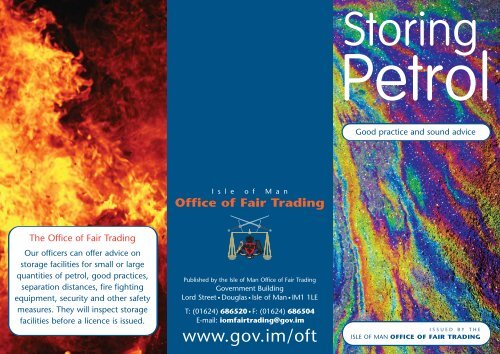
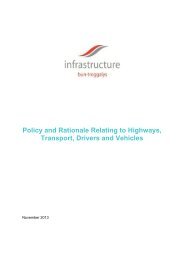
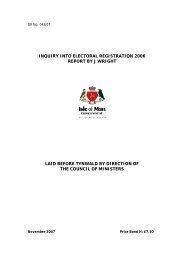
![Smeaton v Equifax CA[2013] EWCA Civ 108](https://img.yumpu.com/22052507/1/184x260/smeaton-v-equifax-ca2013-ewca-civ-108.jpg?quality=85)

